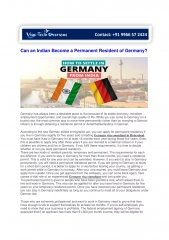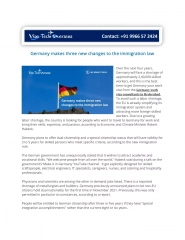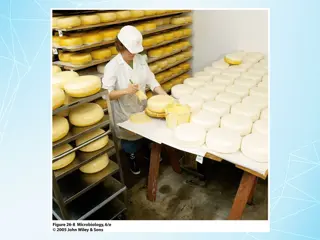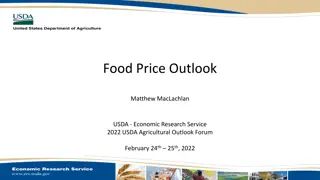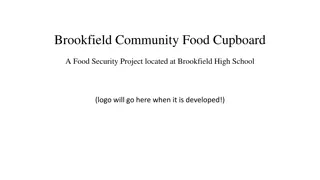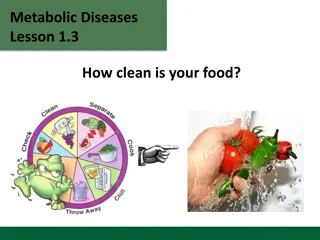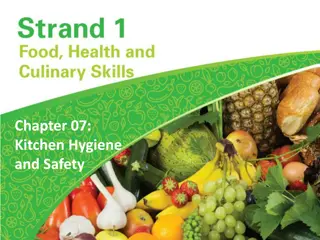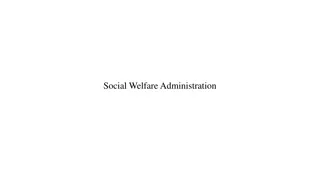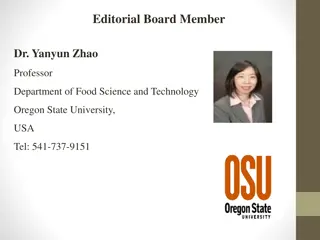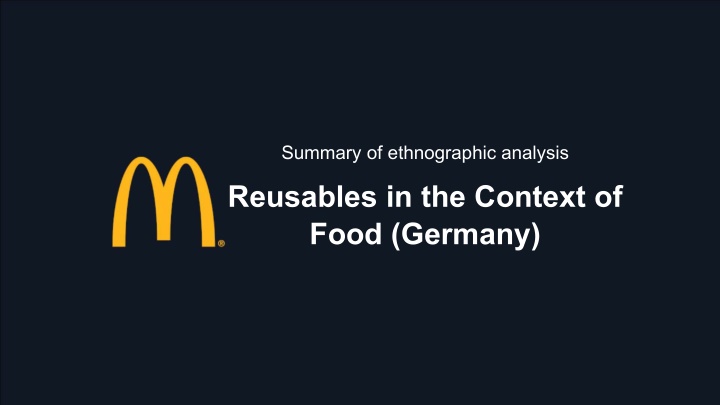
Ethnographic Analysis of Reusables in German Food Context
"Explore the ethnographic analysis of reusables in the context of food in Germany. Understand consumer beliefs and behaviors towards sustainable practices, core values, and new ideas for a greener future."
Download Presentation

Please find below an Image/Link to download the presentation.
The content on the website is provided AS IS for your information and personal use only. It may not be sold, licensed, or shared on other websites without obtaining consent from the author. If you encounter any issues during the download, it is possible that the publisher has removed the file from their server.
You are allowed to download the files provided on this website for personal or commercial use, subject to the condition that they are used lawfully. All files are the property of their respective owners.
The content on the website is provided AS IS for your information and personal use only. It may not be sold, licensed, or shared on other websites without obtaining consent from the author.
E N D
Presentation Transcript
Summary of ethnographic analysis Reusables in the Context of Food (Germany)
SOCIAL MEDIA ANALYTICS Direct conversations about a topic SOCIAL MEDIA ANALYTICS Direct conversations about a topic METHODOLOGY Using machine intelligence + PhD Anthropologists, we conduct an observational study of consumer language to decode beliefs. SCALE Our engine scrapes data from (and studies) more than 20M consumers between the ages of 18-74 each monthNOTE: For global analysis, check our support portal for any limitations in data and representation. 2 ANTHROPOLOGY Direct and Indirect contextual conversations about a topic BY ANALYZING THE ASSOCIATIONS OF THE ASSOCIATIONS WE DISCOVER THE FORCES OF CHANGE REPRESENTATION It's 2022! We have no problem finding a representative sample of consumers between the ages of 18-74 in the western world. However, nothing is perfect. We do allow for approx 4% margin of error in demographic reporting.
Reusables in the Context of Food How relevant is this space? Relevant to 35M people and growing by 20.3% over the next 2-3 years. 3 This culture has just reached its tipping point. This means consumers have only recently developed a clear sense of what they want in this space but there is still room for change.
Set up: Iceberg model of meaning This is our context. It's the part of the iceberg that s visible to us all. Consumers in your marketplace will have no trouble talking about this macroculture when asked questions about it. But their responses will tend to be logical and framed. MACROCULTURE implicit meaning line This is the most dangerous or valuable part of the culture where core beliefs are held. These core beliefs are hidden from plain sight and drive the consumer's decisions. People will often have a very difficult time articulating these beliefs and that is where observational research is key. CORE BELIEFS This is the least dangerous part of the culture. That is, these manifestations are current ways in which the consumer's beliefs manifest out in the market. This is also the part of the culture that changes the most because manifestations are behaviors that change and evolve quite often as new technologies and solutions are launched. CURRENT MANIFESTATIONS
These are the core beliefs that define the consumer in the context of Reusables in the Context of Food 1. Keeping Clean and Healthy (Gesund und Sauber bleiben) Reusables in the Context of Food = making sure reusable containers are sanitary for repeated use. 3. Incentivizing Sustainable Action (Anreize f r nachhaltiges Handeln) Reusables in the Context of Food = motivating everyone to do their part for the environment by reducing packaging waste. 5. Preparing for a Sustainable Future (F r eine nachhaltige Zukunft ger stet) Reusables in the Context of Food = modelling eco-consciousness to the next generation as a normal, everyday behavior. 5 NEW IDEAS 2. Reusables on the Go (Wiederverwenden unterwegs) Reusables in the Context of Food = making reusables second nature while on the go. 4. Simple Returns (Einfach R ckgaben) Reusables in the Context of Food = seeking hassle-free methods for returning reusables to ensure high participation in reusable dish systems.
1. Keeping Clean and Healthy (Gesund und Sauber bleiben) Core Belief Core Belief Reusables in the Context of Food = making sure reusable containers are sanitary for repeated use. Current manifestations of this belief They look for leak-proof reusable packaging because they worry about making a mess while transporting food. These consumers want to choose reusable containers or packaging made from materials that are free from toxic chemicals. They discuss that it can be difficult to get bits of dried food or debris out of containers and want reusables that are simple to clean and can withstand the heat of a dishwasher. 6 Consumers are discussing how reusable containers keep their fruits and vegetables fresher, which they think offers them more nutrients.
2. Reusables on the Go (Wiederverwenden unterwegs) Core Belief Core Belief Reusables in the Context of Food = making reusables second nature while on the go. Current manifestations of this belief They discuss that it can be difficult to remember their reusables when on the go so they are sharing tips on how to be prepared when they expect to eat multiple meals out. They discuss how biodegradable cutlery and plates are another sustainable packaging solution when they don't want to carry around reusable containers. Consumers, however, express frustration about a heavy load and are thus looking for light, reusable containers that can be easily stowed away in their bag. 7
3. Incentivizing Sustainable Action (Anreize fr nachhaltiges Handeln) Core Belief Core Belief Reusables in the Context of Food = motivating everyone to do their part for the environment by reducing packaging waste. Current manifestations of this belief Consumers discuss how single use plastic is cheaper for companies and think there is no real incentive for companies to utilize reusables in grocery stores or restaurants without governmental regulation. They talk about how increased taxes on single use plastics are an effective way to get people to invest and participate in reusable dish systems. However, they also mention that a total ban on single use containers is impractical. 8 These consumers are discussing how a deposit ("Pfand") system only works if the deposit cost is high enough to actually incentivize individuals to always return their reusable containers. These consumers talk about how the Pfand should be expanded to more types of containers because they say the majority of the trash they see on the street comes from bottles without a Pfand.
4. Simple Returns (Einfach Rckgaben) Core Belief Core Belief Reusables in the Context of Food = seeking hassle-free methods for returning reusables to ensure high participation in reusable dish systems. Current manifestations of this belief They want to ensure automated bottle return machines are in good working order so they don't have to waste their time searching for a working machine. Consumers wanting to have food delivered to them in reusable bowls seek to ensure they can easily return their dishes without too much hassle. They are talking about plastic-free grocery delivery services because they like the convenience of having groceries delivered in eco-friendly reusable containers and then picked up from their home once they're done with them. 9 Consumers talk of wanting dish return locations for chain restaurants or caf s to be spread out geographically so they can return dishes wherever they are, but with a system in place that makes these spots easy to find.
5. Preparing for a Sustainable Future (Fr eine nachhaltige Zukunft gerstet) Core Belief Core Belief Reusables in the Context of Food = modelling eco-consciousness to the next generation as a normal, everyday behavior. Current manifestations of this belief These consumers think it is important to show children, from the youngest of ages, how important reusables are in the fight against packaging waste so they seek reusables designed for young children and babies. They want to be good examples for their impressionable children and thus do their best to show their kids that they are making sustainable choices like prioritizing reusable containers and bags when buying food. They think showing their kids how to utilize reusables in interesting ways gets them out of their comfort zone and lets them have fun as a family. 10 Consumers think that young people are flexible and will easily adapt to new regulations on reusables.
6. Sustainable Disposable Packaging (Nachhaltige Wegwerfverpackung) Core Belief Core Belief Reusables in the Context of Food = ensuring sustainability claims for disposable packaging are accurate. Current manifestations of this belief Consumers talk about how using byproducts from other resources for disposable containers makes them feel like they are capitalizing on every available resource but worry that waste materials make inferior products. Consumers recognize printed packaging is not recyclable and look for unprinted packaging to not be fooled by false recycling promises. Consumers are concerned that bioplastics are not a sustainable alternative to regular plastics because they are not confident that they biodegrade properly. 11 They value knowing the source of raw materials for sustainable disposable containers so they can be informed as to how and where these materials are extracted from. These consumers are wary of recyclability claims of plastic packaging because they know only a few types can fully be recycled.
Your action plan It's time for some homework Mid term opportunities Short term opportunities Reusables in the Context of Food = ensuring sustainability claims for disposable packaging are accurate. Reusables in the Context of Food = making sure reusable containers are sanitary for repeated use. Reusables in the Context of Food = motivating everyone to do their part for the environment by reducing packaging waste. Reusables in the Context of Food = seeking hassle-free methods for returning reusables to ensure high participation in reusable dish systems. Reusables in the Context of Food = modelling eco-consciousness to the next generation as a normal, everyday behavior. Reusables in the Context of Food = making reusables second nature while on the go. Core beliefs DNA Current manifestations of core belief Product DNA (In what ways is your product delivering against these beliefs?) - - - - - - Brand DNA (In what ways is your brand delivering against these beliefs?) - - - - - - Future manifestations of core belief Product DNA (In what ways could your product deliver against these beliefs?) - - - - - -
Brand DNA (In what ways could your brand deliver against these beliefs?) - - - - - -




